67 years ago around this time, American and British intelligence services organized a coup in Iran that arguably changed the equations in West Asia (Middle East) forever.
The story, as almost usual, starts with oil. Prime Minister Mohammad Mossadegh was a key figure in nationalizing the country’s oil industry, an issue that put the British interests in Iran in danger. The colonial power could not tolerate the loss and asked America to help to organize a coup to topple Mosaddegh and appoint their own puppet to control the oil-rich Iran.
The intelligence services devised deadly plots in the form of riots in Tehran that eventually led to Mosaddegh’s arrest. Mosaddegh, who was convicted of treason by a court, served three years in solitary confinement and then died under house arrest in exile in 1967.
The Britain and US brought back to power Mohammad Reza Pahlavi, known here as ‘Shah’, who imposed a dictatorship and ultimately led to the rise of the Islamic Revolution in the course of some 26 years.
The foreign intervention was aimed at safeguarding West's oil interests in the country but eventually created an anti-Western attitude among Iranians.
1953 Coup marks beginning of the passing the imperial baton: Professor Yaghoubian
Reviewing the history of the coup, one could wonder why the British asked the Americans for help in the first place? And is this US-UK cooperation still in place? These are questions that we asked David Yaghoubian, a professor of history at California State University San Bernardino. He answered the Mehr News Agency question with the following voice message:
The professor highlights that “British and American interests in Iran, as well as their respective assets, had converged.”
Their ‘shared interest’, he continues, was “in controlling the Iranian oil” and so the British and American assets “became complementary” to achieve these goals.
Clearly this cooperation still continues where British and American economic and geo-strategic interests converge such as in Iraq, Libya, Syria, and most recently in Venezuela.
“The British were far more advanced than Americans in terms of the knowledge of the Iranian society and politics, their civilian and military networks and contacts and as well, with their relationship with General Zahedi. However, after October 1952 only the United States though maintained an embassy in Tehran to serve as a spy den through which they organize the coup,” Yaghoubian added.
“Beyond the convergence of interest and assets, more broadly, US and British cooperation on Iran in 1953 represents the beginning of the passing of the imperial baton but in this instance due to the configuration of the post-coup consortium with 40 percent going to BP and 14 percent going to Shell, the British got exactly what they wanted and it can be argued that Americans did too,” he said, adding “Clearly this cooperation still continues where British and American economic and geo-strategic interests converge such as in Iraq, Libya, Syria, and most recently in Venezuela.”
Imperial mindset seeks to take control of other countries' resources: Professor Cavell
Yes, colonial powers have always tried to control other countries’ resources and history is full of such instances. But he question is whether the era of colonialism has passed or not. Its traditional sense may have been eliminated but certainly not the modern one.
The US has a long history of eyeing other countries’ oil, take it from Iran and Iraq, to most recently, Syria. Now, there arises this question: “Given that oil was the central purpose of the 1953 coup, do you think Washington is still seeking to exploit resources of other countries?”
Colin S. Cavell, a full professor of political science at Bluefield State College in West Virginia's Bluefield, answers this question through an exclusive video comment for Mehr News Agency.
“Absolutely,” Professor Cavell highlights.
“As a matter of practice, US foreign policy places the acquisition and/or control of the world’s natural resources as one of its primary concerns and interest,” he said.
As a matter of practice, US foreign policy places the acquisition and/or control of the world’s natural resources as one of its primary concerns and interest.
“The capitalist economic system which propels US foreign policy has to have continuous growth and expansion in markets in order to survive. As such, if necessary resources are either exhausted or are too-costly domestically, then the imperial mindset, which capitalism necessarily engenders, will either seek to colonize foreign lands where those resources are located, and that was the normal practice in 19th and the first half of the 20th century."
If the first approach is not possible, continues Cavell, the imperialism "will ensure that measures are taken to coerce unwilling governments to grant access to the natural resource" and may even use military force to 'overthrow recalcitrant governments'.
Is it time to trust the US again?
Form the US’ and Britain’s point of view, the Mosaddegh government was a ‘recalcitrant’ one and so they overthrew it even at the cost of claiming hundreds of lives in Tehran. That was the start of Iranian people’s realization of the United States’ true face. Washington has failed to improve this belief among Iranians since then, rather one could argue that the US is becoming more and more hated.
From organizing the coup to supporting the dictator Saddam Hussein in the imposed war against Iran, from downing an Iranian airliner to imposing severest sanctions against the country that ultimately affect the people, and from the withdrawing from a UN-endorsed agreement to assassinating a top Iranian commander in a third country; these are arguably enough to kill any trust to the US.
Among all these, the US is pushing for new talks with Iran to arrive at a ‘better deal’ than the JCPOA. Tehran has rejected the offer, nothing that US should return to the JCPOA if it wants to start multilateral negotiations with Iran. Washington has instead launched its ‘maximum pressure’ policy while Tehran has reiterated the implementation of ‘maximum resistance’ in what the Leader of the Islamic Revolution once referred to as the ‘war of wills’.
Given the history of ties, many inside Iran believe that US cannot be trusted again but the question is “what can Washington do to rebuild trust?” We reached out to a political commentator and a professor at the University of Tehran, Mohammad Marandi. Here is the voice message that he sent:
“There has never been any trust to rebuild,” notes the professor, adding, “The US-Iranian relationship from the very beginning has been one where the Iranians were taken advantage of.”
“The United States overthrew the national government and imposed a dictatorship, allowed and enabled the dictator to torture and kill people, and the Americans were able to make hundreds of billions of dollars and plunder Iran’s wealth.”
Americans have to do a lot if they ever want to have sort of real relationship with Iran.
He notes that after Americans gave refuge to Shah and his ‘billions of dollars of money’ and tried to ‘undermine’ the ‘new state’, students took over the embassy “in protest and also discovered documents which showed the embassy was a center for de-stabilizing the country.”
“Afterwards, Americans supported Saddam Hussein invading the country. They and Europeans gave him chemical weapons and military intelligence to use the weapons and gave him political power to get away with these crimes. And of course, after that, there have been sanctions after sanctions; so there never really was any trust to rebuild.”
US still continues its past policies against Iran and as Marandi puts it “they have to do a lot if they ever want to have sort of real relationship with the country.”


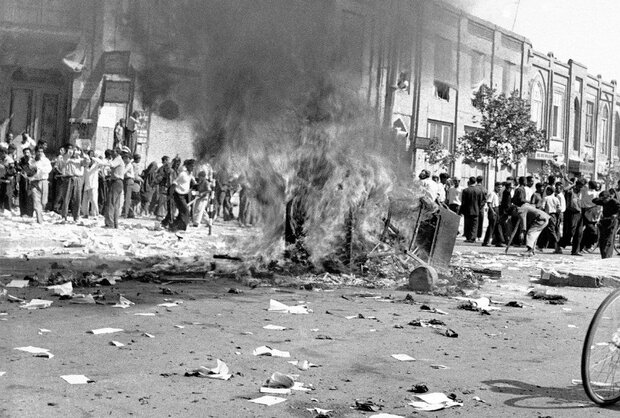




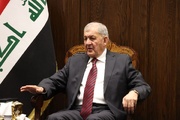

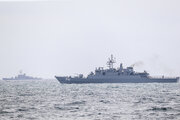
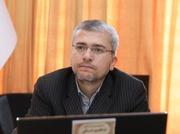
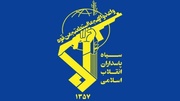
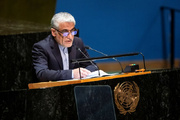
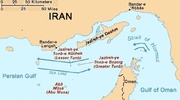
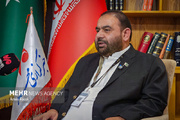

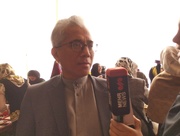
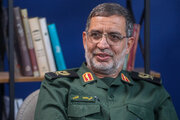



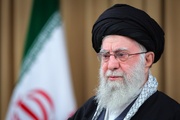


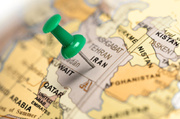
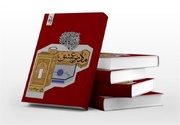
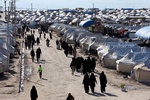
Your Comment